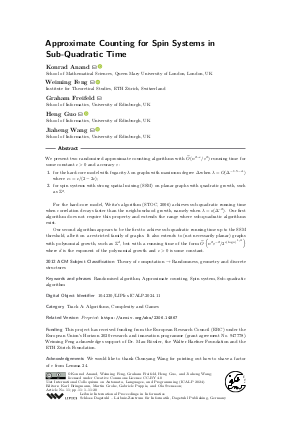LIPIcs.ICALP.2024.11.pdf
- Filesize: 0.89 MB
- 20 pages

 Creative Commons Attribution 4.0 International license
Creative Commons Attribution 4.0 International license


































Feedback for Dagstuhl Publishing